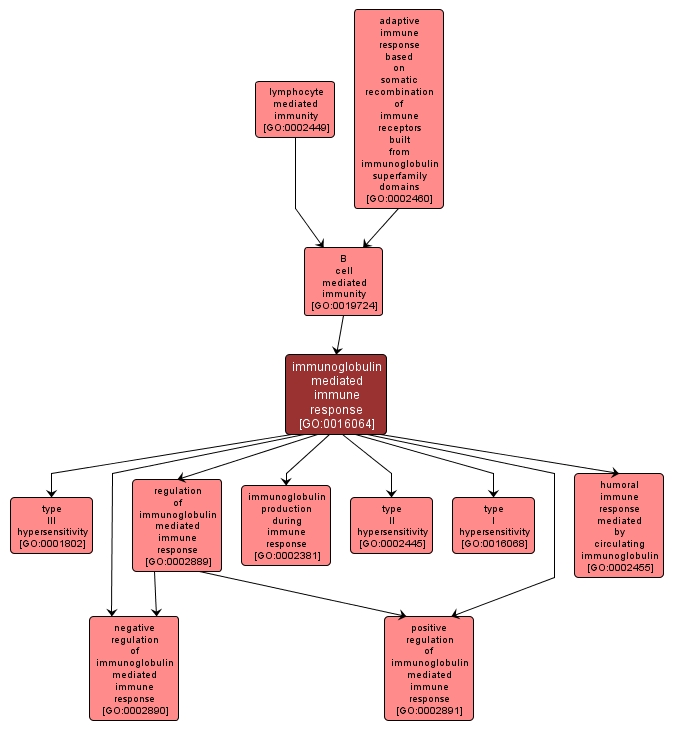GO TERM SUMMARY
|
| Name: |
immunoglobulin mediated immune response |
| Acc: |
GO:0016064 |
| Aspect: |
Biological Process |
| Desc: |
An immune response mediated by immunoglobulins, whether cell-bound or in solution. |
Synonyms:
- antibody-mediated immune response
|
|

|
INTERACTIVE GO GRAPH
|














